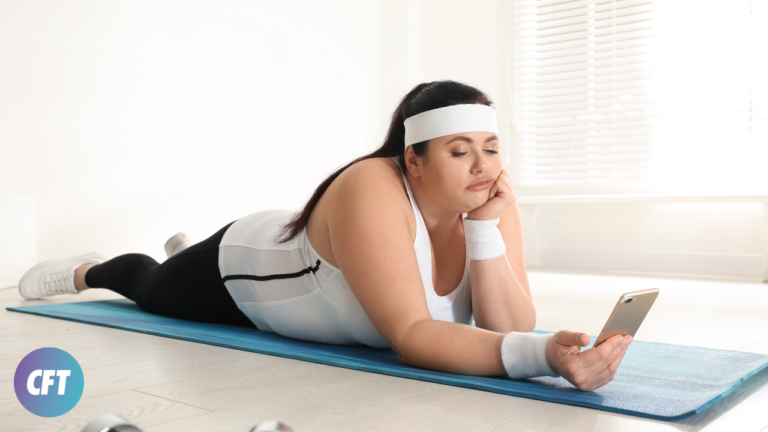Breaking the Cycle of Bad Habits

In her book The 5 Second Rule: Transform your Life, Work, and Confidence with Everyday Courage Mel Robbins introduces us to the five second rule.
Users of the rule count down 5–4–3–2–1 in moments when they would allow their brains to run the show- telling them to go left when they really wanted to go right, telling them to hit the snooze when they really wanted to try to get up, or telling them to stay quiet when they really wanted to speak out.
The five seconds gives us power to stop the old habit or moment of being stuck, take control of our brains, and establish a new habit.
We are all creatures of habit to some extent

Habit is what allows us to go through life not having to think about all the things we do every day, from our morning routine to driving home from work.
And a lot of habits are GOOD habits- like brushing our teeth. But many of us have at least one habit that’s not our favorite, and we might even deem it a BAD habit- one we would like to break.
Sometimes it’s as easy as saying “I’m just not going to do that anymore” and it will work. Sometimes we can use the five second rule and we can break the cycle fairly quickly- because at the end of the day the simplest way to break a bad habit is become aware of the cycle, stop the “bad” behavior and replace it with an alternate “better” behavior.
It’s so simple on paper, isn’t it? And perhaps with things like hitting the snooze button it IS simple.
It gets a bit more complicated when we delve into larger bad habits- like addictions.
Trying to quit smoking, stop overeating, or stop drinking might seem simple to stop on the surface, but these habits go very deep into our psyche, and they take a lot more work to change.
Why? Because these habits- the alcohol, food, money, are habits that we use to identify ourselves with. We see ourselves as these people- “but I’m more fun when I drink”, “I’m a rebel”, “I’m fat- this is who I am”, “I’m always in debt”, “I’m a gambler” etc…. and our brains have a NEED to be right about who we are.
If we try to change our habits, our behaviors, our brains will do whatever it takes to sabotage our attempts.
Our brains want us to stay where we originally defined ourselves
Crazy right? Our whole setup is designed to NOT CHANGE. Which means when we try to make especially big changes, change big habits, release huge parts of our identity, we’re going against the very way we are designed.

But this is not in any way, shape, or form permission to stay stuck.
In fact, if anything this is even all the more reason that it’s time to take action NOW rather than even 10 minutes from now. Because the longer we let our brains think we are right about behaviors that are negatively impacting our lives, the more work it will be to change. We act now to make it easier.
It all begins with awareness.
Those bad habits do not define who you are. You’ve established those habits as coping skills. Somewhere along the line you didn’t feel good and you found one of these habits that made you feel instantaneously better.
Does the term instant gratification ring a bell? The surge of dopamine, serotonin, and norepinephrine surge through your brain and it feels amazing. We then repeat the behaviors because IT FEELS GOOD.
The problem with using these behaviors to get these hits of feel good hormones is they only treat the momentary down- they don’t fix the real reason you feel bad.
You’re coping with social isolation by eating a box of donuts which makes you feel good in the moment, but the minute you stop eating, you’re still alone. And then a cycle begins.

Whether you’re 25 or 75, realizing the WHY behind your behaviors will be your greatest weapon in changing them.
You still have to stop the behavior in the moment and reroute to a better one- put down the donut and eat a some carrots- but until you address WHY you are behaving the way you do- and address the demons that chased you into the pantry- you’re still going to be on a constant search for your next dopamine fix.
Behavior change is a billion-dollar industry.
We have coaches, therapists, books, tapes, seminars, how-to manuals, retreats, pills, shock therapy. You name it and you can probably find it. And do we need all of this? Maybe. But at the end of the day, behavior change is habits.
Habits are breakable. Redefinable.
When you see the reason you behave the way you do, how you’ve instilled these habits as coping skills, that you’re not what you’ve decided to define yourself as, and that you are in fact capable of changing these behaviors, then you’ve taken the first steps to tell your brain “screw you- you are wrong- I’m not fat, lazy, worthless, irresponsible, dumb, etc” or the host of other things you tell yourself.
You tell yourself these things, then do the behavior to confirm “see- yes you are”- and this is your cycle. It goes just like this:
- Feel bad (mean mom, aggressive boss, stress at work)
- Seek something in the moment to make you feel better (food, drugs, money, etc)
- Beat yourself up about the behavior that is negative but made you feel good
- Call yourself the bad words for the negative behavior
- Repeat
Sometimes you can’t necessarily change the things that are making you feel bad.
Sometimes you have to put up with them, at least for the moment. But that doesn’t mean you have to beat yourself up more because life is beating you up.
If anything, it’s all the more reason to find good behaviors that rebel against the negative (I know WAY easier said than done).
This is the other reason we get so easily stuck in these cycles- the donuts, spending, etc are EASY behaviors to perform- it takes two seconds to drive down to the store and indulge in a box of crispy cremes. It’s way more work to process the negative and then find a way to deal with it, or even to just feel bad in the moment.
I never said that breaking the cycle would be easy. In fact, for many of us it will be one of if not the hardest things we have ever had to do. But it’s doable.

How do you break your cycle?
Become aware of WHY you are doing what you are doing. Write it down, process how you feel. Don’t immediately go to the instant gratification.
Realize that you’ve defined yourself by this negative behavior- but that it’s an incorrect definition.
You’re not worthless, or stupid, or fat, or whatever. You’re an amazing human being (and I can say that with 100 percent confidence and I don’t even know you!)
Now, in that moment when you’re feeling like crud, accept that you’re feeling bad, realize that it’s okay to feel bad in the moment, walk away (you can use the 5 second rule to start walking), and find an alternative better behavior (like an apple instead of sweets, or transferring the 20 dollars to a savings account instead of spending it).
Then, here is the key to the whole damn thing- as you perform this new behavior- you tell yourself “I’m a healthy eater, I’m a saver, I’m responsible” or whatever the opposite of what you used to say to yourself. And your brain will come to accept that this is who you are.
Remember I said your brain needs to be right? It doesn’t like change? If you were an athlete, you wouldn’t binge on a whole box of donuts because you say to yourself “I’m an athlete- I don’t do this” and you have the power to stop and eat only one or maybe none at all.
You do this and your whole life will change.
People every day quit drinking, lose weight, stop smoking, and make changes. They’re no different from you or I. The difference is that they made a decision to change.
You can break the cycle, change your body, manage your finances, or the million other bad behaviors you might have. But it starts with SEEING what you’re doing, why you’re doing it, and then taking the steps to rewire your brain.
Put some sticky notes all over your house telling you what you need to believe. Put an elastic band around your wrist and snap yourself every time you go down the “beat yourself up in your head” path. Make a list of the things you say to yourself- be honest- and then write the opposites of them.
Your habits and behaviors are under your control. Who you are is defined by you. And you have the power to be whoever you want to be.
Break the cycle. Stop your bad habits. Live the life you, as an amazing human, deserve to live.
References
DiSalvo, D. (2013). Brain Changer: How Harnessing Your Brain’s Power to Adapt Can Change Your Life. BenBella Books, Inc..
Duhigg, C. (2013). The Power of Habit: Why we do what we do and how to change. Random House.
Robbins, M. (2017). The 5 Second Rule: Transform Your Life, Work, and Confidence with Everyday Courage. Simon and Schuster.
Rogers, E., & van Dam, N. (2015). You the Positive Force In Change: Leveraging Insights from Neuroscience and Positive Psychology. Lulu Press, Inc.




